The Constitution (Article 1, Section 9) is clear: “No Title of Nobility shall be granted by the United States.” We have no kings or emperors or dukes, but the U.S. does have a tradition of bestowing the informal title of czar upon leaders tasked with certain specific responsibilities. The term is often used as a pejorative to describe a position of power that is significant but not clearly defined by the Constitution—and at times not even clearly defined by the appointing administration.
That lack of definition is coming back to haunt Vice President Kamala Harris. Back in March of 2021, President Joe Biden asked her to “lead our efforts with Mexico and the Northern Triangle” as those nations “need help in stemming the movement of so many folks, stemming the migration to our southern border.”
He admittedly never used the words “border czar.” But during the recent Republican convention, a number of speakers called Harris out using the term to highlight her responsibility for what they say is an unmitigated disaster on the southern border. Since becoming the presumptive Democratic nominee for president after Biden’s withdrawal, however, Democrats and media reports have pushed back, saying that Harris’ responsibilities are more narrowly defined. Axios even had to publicly walk back on having used the term.
So was Harris the “border czar” or not? It’s complicated.
When Joe Biden assumed office in 2021, he named immigration reform as a top priority to be tackled with what he called a “whole of government” approach. That spring, Biden put Harris, his vice president, in charge of that project:
There’s about five other major things she’s handling, but I’ve asked her, the VP, today—because she’s the most qualified person to do it—to lead our efforts with Mexico and the Northern Triangle and the countries that help—are going to need help in stemming the movement of so many folks, stemming the migration to our southern border. … The Vice President has agreed—among the multiple other things that I have her leading—and I appreciate it—agreed to lead our diplomatic effort and work with those nations to accept re—the returnees, and enhance migration enforcement at their borders—at their borders.
The president went on to highlight Harris’ former role as a prosecutor, claiming that her efforts to both uphold human rights and fight organized crime uniquely qualified her for the role he had in mind: “It’s not her full responsibility and job, but she’s leading the effort.”
Vice President Harris then said of her new role (emphasis added here and following):
While we are clear that people should not come to the border now, we also understand that we will enforce the law and that we also—because we can chew gum and walk at the same time—must address the root causes that—that cause people to make the trek, as the President has described, to come here.
So while the president said that Harris would personally lead diplomatic efforts, he named her as “leading the effort” that included contentious border issues. Interestingly, when President Barack Obama appointed a “border czar” in 2009, a New York Times article explicitly used that term to describe “Alan D. Bersin, a former federal prosecutor” who would help “crack down on violence linked to drug cartels along the United States-Mexico border” as well as “focus on … illegal immigration.”
The Times also used that nomenclature in reference to Roberta Jacobson, the former ambassador to Mexico whom Biden named as a special assistant to coordinate border security efforts for the first few months of his administration. In April 2021, National Security Adviser Jake Sullivan announced that Jacobson was retiring, and implicitly passed the torch to Harris.
President Biden has asked Vice President Kamala Harris to lead the Administration’s work on our efforts with Mexico and the Northern Triangle, a testament to the importance this administration places on improving conditions in the region. The Vice President is overseeing a whole-of-government approach supported by outstanding public servants across the interagency including Secretary of Homeland Security Alejandro Mayorkas and Secretary of Health and Human Services Xavier Becerra, who were tasked by the President at the beginning of the administration to rebuild our immigration system.
At that point, pressure increased on the vice president regarding her attention to the border. At an April 14 virtual roundtable, for example, Harris was asked about her plans to visit the southern border. She immediately downplayed her connection to that part of the immigration issue:
The President has asked Secretary Mayorkas to address what is going on at the border. And he has been working very hard at that, and it’s showing some progress because of his hard work. I have been asked to lead the issue of dealing with root causes in the Northern Triangle, similar to what then-Vice President did many years ago.
[...]
So, our focus is to deal with the root causes, and I’m looking forward to traveling, hopefully, as my first trip, to the Northern Triangle—stopping in Mexico and then going to Guatemala sometime soon.
Despite Harris’ protestations to the contrary, however, the impression given by the White House about Harris’ leadership role in the “whole-of-government” approach had already been made. In addition to the Axios article referring to Harris as “appointed by Biden as border czar,” Axios had earlier (in March 2021) published an article titled “Biden puts Harris in charge of border crisis” making the same connection.
Although Harris continued to emphasize that she was focused on “root causes” of migration, she could not avoid the connection to the southern border issues. During a trip to Guatemala in early June 2021, Harris said:
First, on the issue of security—it’s probably one of the highest priorities for each of our nations—the President and I agreed to continue our work to manage migration at Guatemala’s northern and southern borders. We also discussed illicit drugs that are being smuggled and humans who are being trafficked across those borders, undermining the security of both the people of Guatemala and the people of the United States.
Our nations have collaborated on these issues, and we will create a smuggling and human trafficking task force which will work with local law enforcement to stop these crimes. And I have personally worked on these cases in my career and can say that when we see some of the most vulnerable in our communities being taken advantage of, being sold for profit, being abused, it should be a priority for all of us who care about the human condition and humanity.
Harris continued to face pressure. On June 8, 2021, CNN reported on “bumpy answers [from Harris] to questions about whether she will go to the US-Mexico border,” in particular “a sound bite [from an NBC interview] that would likely stick with Harris as she continues to confront the issue at the southern border.”
“At some point, you know, we are going to the border,” Harris said in the interview. “We’ve been to the border. So this whole, this whole, this whole thing about the border. We’ve been to the border. We’ve been to the border.”
Holt responded: “You haven’t been to the border.”
“I, and I haven’t been to Europe. And I mean, I don’t—I don’t understand the point that you’re making,” Harris said with a laugh. She added: “I’m not discounting the importance of the border.”
Finally at the end of June, Harris made her long anticipated visit. NPR reported it this way:
Harris is in charge of the thorny issue of migration from Central America at a time when the Biden administration has struggled to keep up with a surge in migrants.
In March, President Biden tasked Harris with addressing the root causes of the migration crisis, a role he had when he was vice president during an earlier spike in border crossings. Although the White House was careful to emphasize that her role was meant to be a diplomatic one, working with Central American countries driving the arrivals, critics immediately asked why the "border czar" was avoiding the border. That's not a title she ever had.
The visit did little to tamp down “border czar” talk. On July 2, the Republican National Committee released a statement on “Kamala Harris’s 100 days as border czar.”
If, as the White House says, the “Vice President is overseeing a whole-of-government approach supported by outstanding public servants … including Secretary of Homeland Security Alejandro Mayorkas … tasked by the President at the beginning of the administration to rebuild our immigration system,” the argument could be made that Harris is the immigration czar of czars, which would obviously include the border.
Democrats and the White House clearly have an interest in distancing Harris from what is widely seen as a damaging situation. The U.S. has seen record numbers of border encounters during the Biden administration, and it’s a top-of-mind concern for many American voters. Polling shows voters are displeased with Biden’s handling of the issue.
Republicans have an obvious interest in pinning the blame on the Democratic Party’s new standard bearer. In the absence of a legislative or even a bureaucratic definition of the role of a “border czar,” the controversy over Harris’ role is impossible to answer precisely. But if the public perceives Harris’ rejection of the title as simply an evasion of responsibility, those consequences are likely to be far more significant than whether or not “border czar” ends up on her resume instead of “president of the United States.”
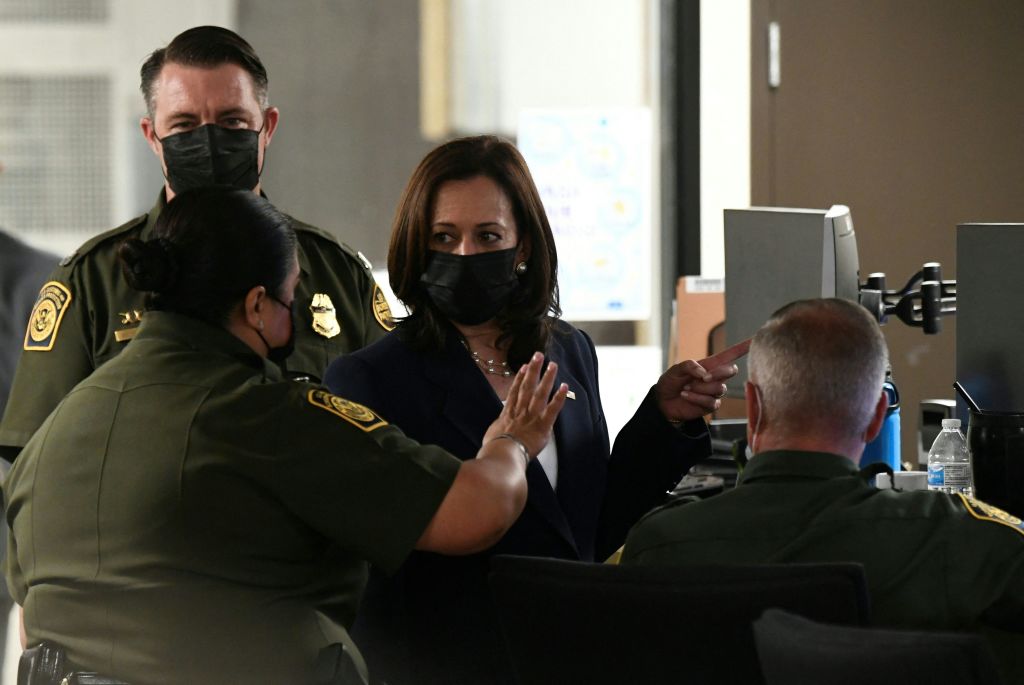
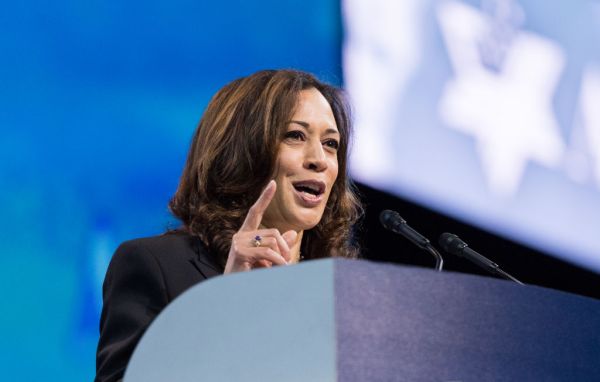
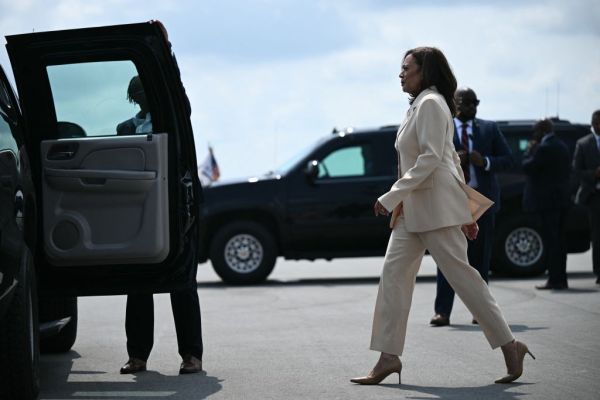
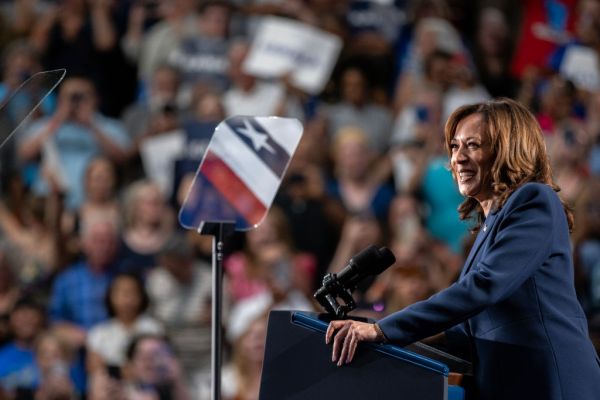

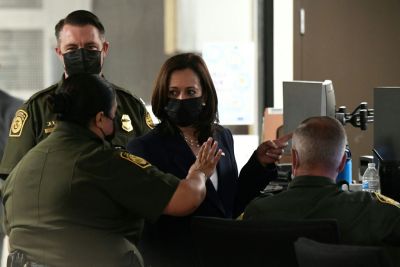
Please note that we at The Dispatch hold ourselves, our work, and our commenters to a higher standard than other places on the internet. We welcome comments that foster genuine debate or discussion—including comments critical of us or our work—but responses that include ad hominem attacks on fellow Dispatch members or are intended to stoke fear and anger may be moderated.
With your membership, you only have the ability to comment on The Morning Dispatch articles. Consider upgrading to join the conversation everywhere.